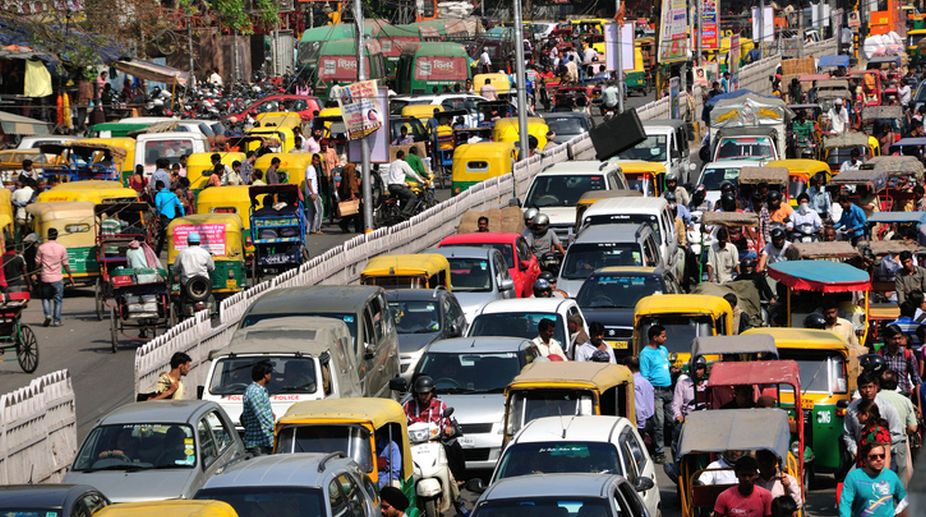Gang of female thieves, active in Delhi Metro busted; five arrested
All the accused women were sent to judicial custody, a police official said.

Representational image (Photo: Getty Images)
Traffic-control lights remaining nonfunctional for days and months, in Delhi's National Capital Region result in frayed tempers and cumulative loss of man hours for commuters and policemen. Damaged light signal posts, leaning over for weeks after an impact, are dismal reminders of civic apathy. Yet no roving repair crew is deployed for speedy restoration of orderly flow of vehicles. In contrast, in the Turkic-Mongol tribal Central Asian countries of Kazakhstan, Kyrgyzstan, Uzbekistan, Turkmenistan and Tajikistan, their pre-1992 Soviet Union Republic era traffic management discipline continues. There is a citizens' fault reporting system and the traffic police ensures that technicians rush to restore functionality.
Traffic snarls in NCR are aggravated by reckless drivers flouting road rules, defiantly cruising on the wrong side of the road, along the side-walk pavements. Brazen helmetless two-wheeler riders forever resort to unsafe manoeuvres to get ahead, despite there being nothing solid between them and a crash. And policemen contend with disorderly vehicular streams to just keep them moving, to avert exasperating gridlocks.
Reserved seat?
Advertisement
One of the many good features of the Delhi Metro is the respect shown by the younger generation to senior citizens and women. Apart from one compartment being reserved for ladies, seats are reserved for ladies as well as senior citizens and physically handicapped in the rest of the train. Being conscious about it, young travellers willingly leave their seats for them. However, at times this mark of respect goes astray, a colleague narrated. On his way to office in the Metro the other day, a girl in her 20s offered her seat to an elderly gentleman, who boarded the train. But, much to her consternation, instead of taking the seat, he turned to a beautiful girl standing next to him, urging her to sit down instead. The girl, perhaps not thinking rationally, readily occupied it. This gesture of the older man did not seem not appropriate to the girl, who had vacated the seat. Perhaps smarting from a sense of insult, the young girl couldn't resist an outburst while getting off at her station. "I offered the seat to you, not that good looking girl. This is inappropriate," the girl tartly told the old man. Realising that something had gone amiss on his part, the other co-passengers also gave him funny looks. Certainly, his chivalry did not go down well, instead attracting jeers.
Brazen stalker
Despite some very stringent laws and measures taken by our law enforcers, one is often amazed at the growing boldness of the so-called Romeos. A colleague narrated how she was recently unnerved by one such person, who stalked her for quite a while. A resident of Gurgaon, she took the Metro to office and had to change trains at Rajiv Chowk to reach Noida. Running on to the platform, where a train had just entered, she asked people standing around about the train's destination. A man in the crowded train confirmed that it was going towards Noida. After getting in, and regaining her breath, our colleague noticed that the man, who was wearing aviators even inside the train, was shamelessly staring at her. Our friend decided not to react to the situation and simply get off when her station came. However, to her surprise, the man followed her as she walked out of the station. He then caught up with her and asked for her phone number or any social network address. It took all of our colleague's courage to give a firm response, enough for passers-by to notice. She relaxed only after entering the office building. Yet she was upset at what might have happened even as she was amazed at the bold manner in which the man accosted her, sure that he would not get into any trouble.
Tailpiece
One wonders whether the debate over agricultural tax is just a coverup for the real crisis that Indian farmers are facing.
Contributed by: R V Smith, Samir Pal, Nurul I Sarkar, Ishita Malhotra and Asha Ramachandran
Advertisement